
You’re a fan of packaged food
Most processed food is chock-full of sodium, which isn’t just bad for your heart—it can also lead to kidney problems. When you’re showing signs you eat too much salt, your body needs to flush the sodium out when you pee, and it takes calcium with it. In turn, having too much calcium in your urine increases your risk for kidney stones, says James Simon, MD, nephrologist with Cleveland Clinic. Health Canada recommends capping sodium at 2,300 milligrams a day, but the average Canadian has more than 3,400 milligrams every day—and some people eat twice that. Take a look at your nutrition label and you might be surprised how quickly sodium can add up. “People look at carbs and fat and calories, but they don’t pay attention to sodium,” says Dr. Simon.
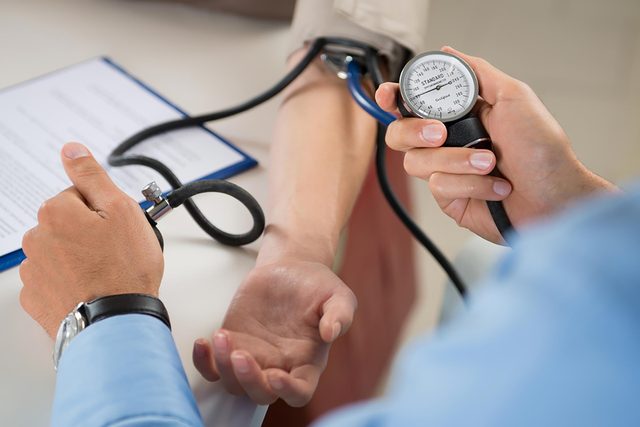
Your blood pressure is out of control
High blood pressure is hard on your whole body—including your kidneys. “Kidneys are basically one big set of blood vessels with urine drains,” says Dr. Simon. “If you have high blood pressure in your big blood vessels, you have high blood pressure in your smaller blood vessels.” Letting high blood pressure go unchecked could damage the blood vessels leading to your kidneys, plus scar the organs themselves. Try using these tips to avoid high blood pressure to keep make sure your levels stay healthy.
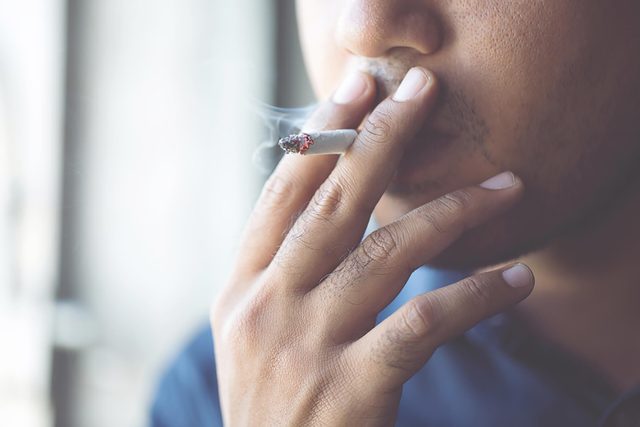
You haven’t kicked your smoking habit
If you thought lung cancer was the only reason to put down the cigarettes, think again. One 2012 study found that quitting smoking for 16 or more years cut risk of renal cell carcinoma (the most common form of kidney cancer in adults) by 40 percent. Plus, smoking can damage the blood vessels, and increase your risk of high blood pressure, says Dr. Simon. “It’s another reason smoking is just bad on the body,” he says. Here’s how long it takes to pass a kidney stone.
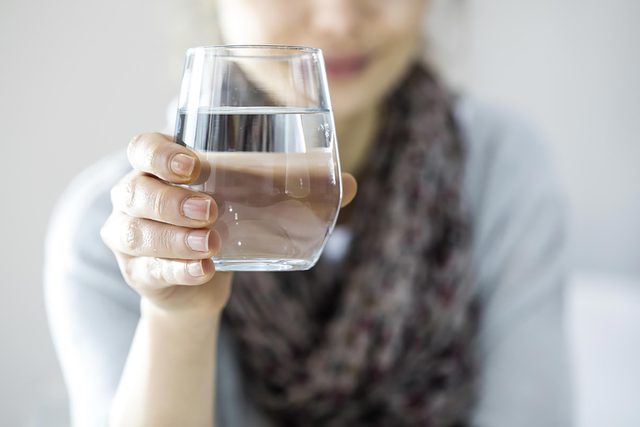
You never drink when you’re thirsty
Contrary to popular belief, you don’t necessarily need to down a full eight glasses of water to keep your kidneys working well. Even with just four to six glasses of water a day, your kidneys are probably fine, says Dr. Simon. But sticking with just a cup or two a day could challenge the organ. Not only will you not have enough water flushing out your system to keep your sodium levels in check, but a dehydrated body will have a harder time keeping its blood pressure up. “The kidney is very sensitive to blood flow,” says Dr. Simon. “It won’t like it if you are so dehydrated that your blood pressure drops and the blood flow to your kidneys drops.” You probably won’t need to worry about that level of dehydration every day, but make sure you drink enough water if you’re exercising a lot or outside on a hot day, he says. This is why your body needs 8 glasses of water a day.
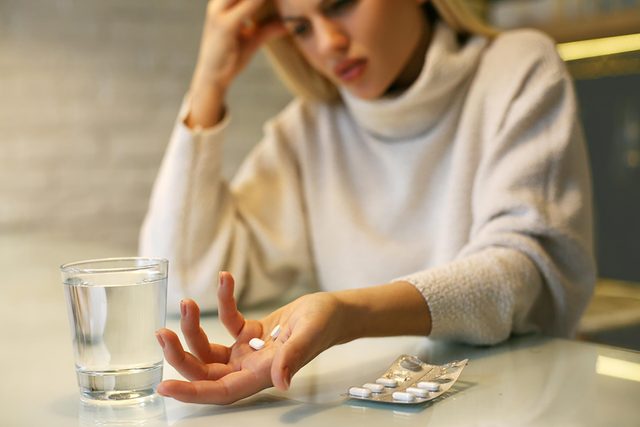
You pop painkillers constantly
Watch out if you take OTC medication for chronic pain. Anti-inflammatory drugs called NSAIDs, which include ibuprofen and aspirin, reduce blood flow to the kidneys, and cause scarring because they’re directly toxic to the organ, says Dr. Simon. Nobody’s saying you need to suffer through a throbbing headache, but taking NSAIDs too often can up your risk of kidney problems. “The people at risk are taking them on a daily basis for long periods of time,” says Dr. Simon. But if you already have kidney damage, he recommends avoiding NSAIDs altogether. Watch for these strange symptoms that could signal a serious disease.
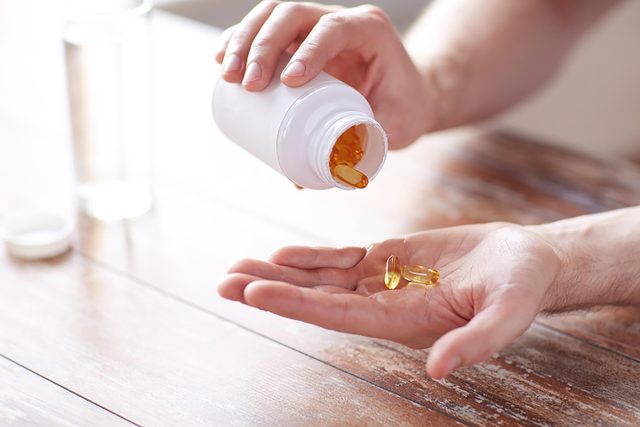
You assume supplements are safe
Just because a product is marketed as “natural” doesn’t mean it’s good for you. “There are plenty of herbal medicines out there that are harmful,” says Dr. Simon. Case in point: A plant-based ingredient called aristolochic acid can be found in “traditional medicines,” but it can cause scarring in the kidneys. The FDA warns consumers to stay away from products listing Aristolochia, Asarum, or Bragantia on the label, because they probably contain the harmful ingredient. Unless you’re taking a regular multivitamin, always check with your doctor before starting any kind of supplement, warns Dr. Simon.
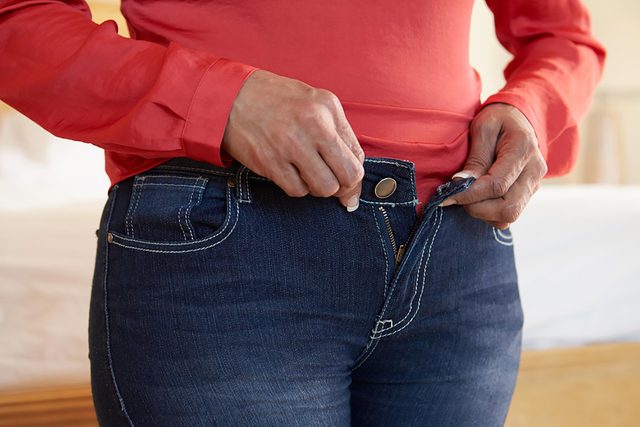
Your weight is pushed to the wayside
No surprise here: Extra pounds are hard on your body. Being overweight puts you at higher risk of developing type 2 diabetes, which in turn can in turn up your chances of developing kidney disease. Insulin issues from both type 1 and type 2 diabetes cause inflammation and scarring in the kidneys, says Dr. Simon. “Anybody with diabetes should be getting their kidney function and urine checked on a fairly regular basis,” he says. Next, find out seven medical reasons why you need to pee all the time.
